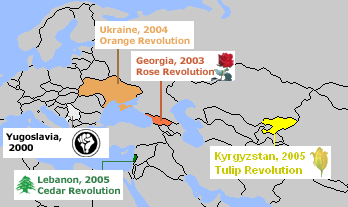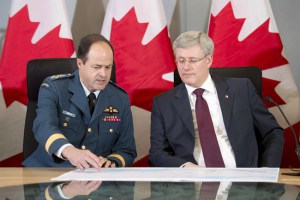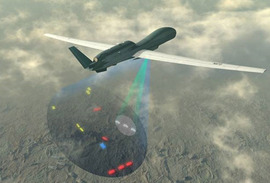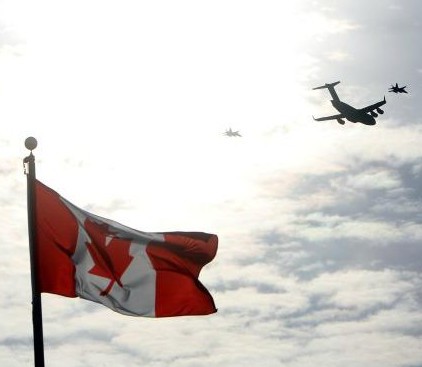
As tensions in eastern Ukraine intensify with the ongoing battle between pro- Russian separatists and the new Ukrainian government, Russia has added fuel to the fire unveiling what appears to be a new Russian National Security Doctrine reminiscent of the rhetoric it displayed during the Cold War era. In the recent Moscow Conference on International Security held on May 23-24th Russia outlined its new doctrine. One of the main themes of the security doctrine was the so called “Colour Revolutions” and their negative effect on Russia and Russian Security. Colour Revolutions in this case refer to the string of protests, uprisings, and government overthrows in the former Soviet Union, North Africa, Middle East, and Asia, in which many were named after colours such as the Rose Revolution in Georgia and the Orange Revolution in Ukraine.
 This new doctrine holds that the U.S. and its allies are engineering these uprisings and revolutions in order to destabilize governments and replace existing regimes with Western backed ones, as well as establish control and exploit natural resources. Russian Defence Minister Sergei Shoigu further made the claim that these types of popular protests are a new type of warfare invented by Western governments seeking to remove existing governments in favour of ones that are controlled by the West. In his speech he said that “The Russians are interpreting U.S. interference in countries like Ukraine and across the Middle East like Egypt, Syria, North Africa… as operations to take their natural wealth and convert their population towards a Western leaning oversight.”
This new doctrine holds that the U.S. and its allies are engineering these uprisings and revolutions in order to destabilize governments and replace existing regimes with Western backed ones, as well as establish control and exploit natural resources. Russian Defence Minister Sergei Shoigu further made the claim that these types of popular protests are a new type of warfare invented by Western governments seeking to remove existing governments in favour of ones that are controlled by the West. In his speech he said that “The Russians are interpreting U.S. interference in countries like Ukraine and across the Middle East like Egypt, Syria, North Africa… as operations to take their natural wealth and convert their population towards a Western leaning oversight.”
 Russia’s General Staff’s Main Operations Head General Zarudnitsky also gave a detailed outline of how these supposed Western backed Colour Revolutions take place. According to him all of these revolutions are set up from the outside. The first step is to send in people to train local activists for peaceful protest against the government. If this fails the next step is to bring in and train paramilitary forces to combat the existing government. Next the countries organizing the overthrow use their military potential to apply overt pressure on the state with the goal of preventing the state from using its own security forces to restore law and order. If the state however does use its security forces and violence escalates, then the foreign country provides military and economic aid to the rebels to defeat government forces and seize power.
Russia’s General Staff’s Main Operations Head General Zarudnitsky also gave a detailed outline of how these supposed Western backed Colour Revolutions take place. According to him all of these revolutions are set up from the outside. The first step is to send in people to train local activists for peaceful protest against the government. If this fails the next step is to bring in and train paramilitary forces to combat the existing government. Next the countries organizing the overthrow use their military potential to apply overt pressure on the state with the goal of preventing the state from using its own security forces to restore law and order. If the state however does use its security forces and violence escalates, then the foreign country provides military and economic aid to the rebels to defeat government forces and seize power.
Considering the U.S. has a long history of using the CIA to help initiate coups and overthrow governments around the world it is not hard to believe that they could be doing it now in Ukraine. To this point however there has been no evidence that the U.S. or the West have had any involvement in the popular protests in February which saw President Viktor Yanukovych ousted. Further, if we look at the situation from the Western perspective it is the Russians who are using the same tactics which they claim are being used by the U.S. It was Russia who took over Ukrainian territory in Crimea and then used its military potential to apply overt pressure on Ukraine to not use its military against separatists in the east. Although Russia has denied it, there is also evidence that they are providing military and economic aid to the rebels in Eastern Ukraine.
Last month the self-proclaimed leader of the Donetsk Peoples Republic said that 31 of the 40 fighters killed in a battle with the Ukrainian army were Russian. Local officials in Donetsk have also said that some wounded fighters who have been hospitalized after fighting are Chechen nationals. NATO has also recently released satellite imagery which gives evidence to the claims that Russian tanks have crossed the border into Ukraine to support the rebels. Even if Moscow is not directly sending these forces into Ukraine it is clear that they are doing little to prevent its citizens from crossing the border and joining the fight with the rebels.
The implications of these actions and this new Russian security doctrine are important not only for Ukraine, but also for future conflict in the region. If Russia sees these “Colour Revolutions” as initiated by the U.S. and the West, then they will feel entitled to counter act these actions with a sort of counter-revolution. In the case of Ukraine the counter-revolution was to annex Crimea and support the rebels in order to “protect” the Russian speaking population from the new “illegitimate” government. This logic however is dangerous as it opens the door for Russia to interfere and use its military to combat internal threats of another country. Even if the uprising is one-hundred percent local with no outside help, Russia will interpret the protests as an attempt by the U.S. to stage another color revolution in order to increase its influence in the region. This will then appear to give Russia the justification to interfere with the internal affairs of another country even if the protests or revolutions were carried out with no foreign help.




